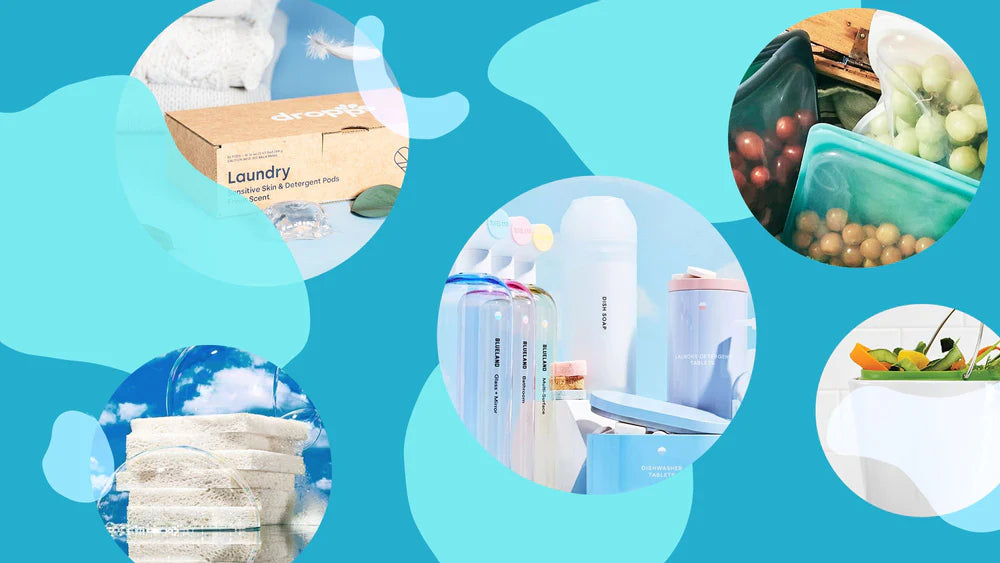In the bustling world of culinary creations, where every detail matters, the choice of baking paper plays a pivotal role not just in the art of cooking but also in safeguarding our health and the environment.
In this deep dive into the world of baking paper, we'll explore the significance of opting for chemical-free and natural options, the repercussions of using chemical or bleach-laden alternatives, the health benefits, and the broader environmental impact of traditional baking papers.
Let's unravel the layers of knowledge and discover how a simple choice in your kitchen can contribute to a greener and healthier planet.
Understanding Chemical-Free Baking Paper
The essence of chemical-free or natural baking paper is at the heart of the matter. Unlike their conventional counterparts, these papers are crafted without the use of harmful chemicals or bleach during the manufacturing process. Instead, they rely on natural elements and innovative technologies to create a baking companion that not only ensures your cookies don't stick but also prioritizes your well-being.
Consequences of Using Chemical or Bleach-Laden Paper
The convenience of traditional parchment paper often comes at a hidden cost – the presence of chemicals and bleaching agents. These elements, while aiding in creating non-stick surfaces, can transfer unwanted substances to your food during the baking process. This transfer of chemicals from the paper to your culinary creations raises concerns about potential health risks associated with ingestion.
Health Benefits
Making the switch to bleach-free baking paper comes with a plethora of health benefits. By eliminating the risk of chemical contamination, you ensure that the purity of your ingredients remains intact. This is especially crucial when dealing with delicate or organic components where the natural flavors and qualities should shine without interference from unwanted substances.
Furthermore, chemical-free parchment paper is often made from natural and allergen-free materials. This is particularly important for individuals with sensitivities or allergies to certain chemicals used in the bleaching process. By choosing bleach-free paper, you create a cooking environment that is less likely to trigger allergic reactions or sensitivities.
Environmental Impact
The environmental impact of conventional baking papers extends beyond our kitchen walls. The manufacturing process of these papers, often involving the use of harsh chemicals and bleaching agents, contributes to pollution and leaves behind a significant carbon footprint. Additionally, the disposal of used papers, laden with potential contaminants, raises concerns about their impact on soil and water ecosystems.
Advantages of Using Bleach-Free Paper
Reduced Environmental Impact: The production of bleach-free paper often involves environmentally friendly processes that minimize the use of harsh chemicals. This results in a reduced environmental footprint compared to traditional papers that may contribute to pollution during manufacturing.
Biodegradability: Bleach-free papers are often more biodegradable than their chemically treated counterparts. This means that when disposed of properly, they break down more naturally over time, reducing the long-term environmental impact of waste.
Conscious Consumer Choices: Opting for bleach-free paper reflects a conscious choice as a consumer to support products that prioritize health, sustainability, and ethical manufacturing practices. By making informed choices, consumers contribute to creating demand for eco-friendly alternatives.
Support for Eco-Friendly Brands: Choosing bleach-free paper encourages the growth and success of brands that are committed to eco-friendly practices. It sends a message to the market that consumers value sustainability, prompting more brands to adopt environmentally conscious manufacturing processes.
Cooking Responsibly for a Greener Future
In conclusion, the choice of baking paper extends far beyond the realm of creating a non-stick surface for your cookies or ensuring an easy cleanup. It's a conscious decision that echoes through the corridors of health and environmental responsibility. Opting for chemical-free and natural baking paper not only safeguards your well-being but also contributes to a more sustainable and eco-friendly culinary journey. As we savor the delectable results of our baking endeavors, let's do so with the knowledge that our choices in the kitchen can be a small yet significant step towards a greener future. Cooking green isn't just about the ingredients; it's also about the choices we make in every aspect of the culinary process.
The surge in environmental consciousness has paved the way for the growing popularity of eco-friendly products in India. From sustainable alternatives to single-use plastics to organic and biodegradable goods, the market is witnessing a notable shift towards eco-conscious consumerism. Bamboo-based products, such as cutlery, toothbrushes, and kitchenware, have gained traction for their renewable and biodegradable nature. Additionally, reusable cloth bags and cotton-based products are becoming prevalent choices, reducing the environmental impact of disposable items. The demand for eco-friendly cleaning products has also seen an upswing, with consumers seeking alternatives that are gentle on the planet and safe for their homes. As more individuals recognize the importance of sustainable living, the eco-friendly product landscape in India continues to diversify, offering innovative solutions to address environmental concerns.
In the realm of culinary creations, parchment paper stands not only as a baking ally but a conscientious choice for health and the environment. Exploring chemical-free and natural parchment paper reveals benefits beyond the kitchen, addressing concerns about health risks and environmental impact. The switch to bleach-free baking paper brings health advantages, catering to allergies and sensitivities, while also contributing to reduced pollution and supporting eco-friendly brands.
In conclusion, cooking responsibly is a holistic endeavor, echoing our commitment to a greener future. The conscious choices in our kitchens align with the growing environmental consciousness in India. From bamboo-based alternatives to reusable cloth bags, eco-friendly products in India are flourishing. Every small choice contributes to a brighter and greener tomorrow, reminding us that responsible cooking is a flavorful journey toward sustainability.









